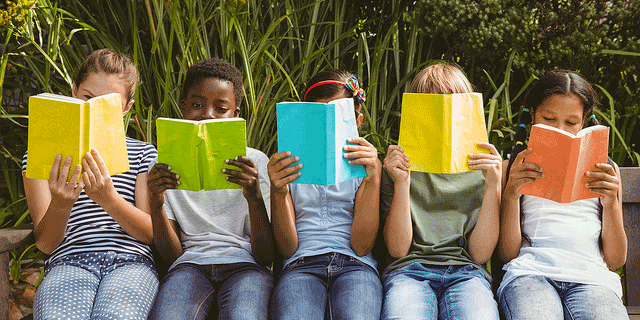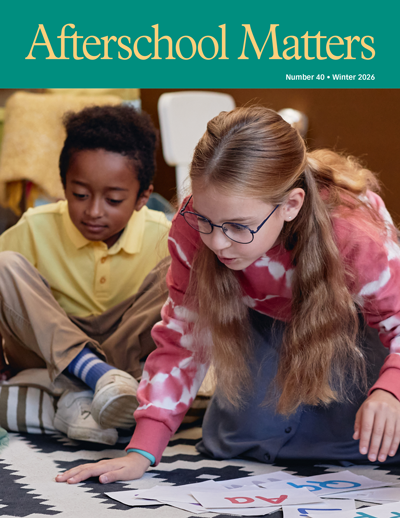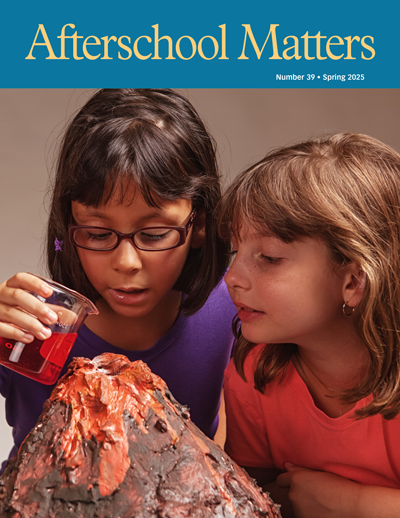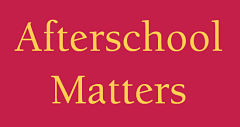Creating Literacy-Rich Environments
April 6, 2022
 Our new Spring 2022 Afterschool Matters journal brings a focus on literacy through this special issue highlighting the work of the William Penn Foundation and its partners to support children and families in Philadelphia through literacy-rich programming and environments. Four papers in this issue reflect current partner initiatives to build literacy-rich environments. Other papers explore how literacy environments promote
Our new Spring 2022 Afterschool Matters journal brings a focus on literacy through this special issue highlighting the work of the William Penn Foundation and its partners to support children and families in Philadelphia through literacy-rich programming and environments. Four papers in this issue reflect current partner initiatives to build literacy-rich environments. Other papers explore how literacy environments promote
the kinds of adult–child interactions that build literacy skills and how museums and community-based organizations can partner to support family literacy. Two articles focus on how coaching can help OST professionals support children’s literacy. Special thanks to the William Penn Foundation for generously funding this current issue. With this renewed focus on literacy, we’re highlighting a few other Afterschool Matters papers from the archives worth a read, too.
- In the ASM Occasional Papers, Fall 2003, Supporting the Literacy Development of Low-Income Children in Afterschool Programs, author Robert Halpern explores the roles afterschool programs can and do play in the literacy development of low-income children.
- “It Means Thank You”: Culturally Sensitive Literacy Pedagogy in a Migrant Education Program by Theresa McGinnis looks at multilingual and multimodal literacy practices in a out-of-school migrant education program to support Cambodian (ethnic Khmer) youth in using diverse modes of communication, revealing the intimate connections among literacy, language, culture, and identity. ASM Spring 2005.
- Author Mollie V. Blackburn explores ways adult facilitators in afterschool programs can work with LGBTQ youth to construct a safe space in which the youth can validate their identities in the process of doing literacy work in Co-constructing Space for Literacy and Identity Work with LGBTQ Youth. ASM Spring 2005.



